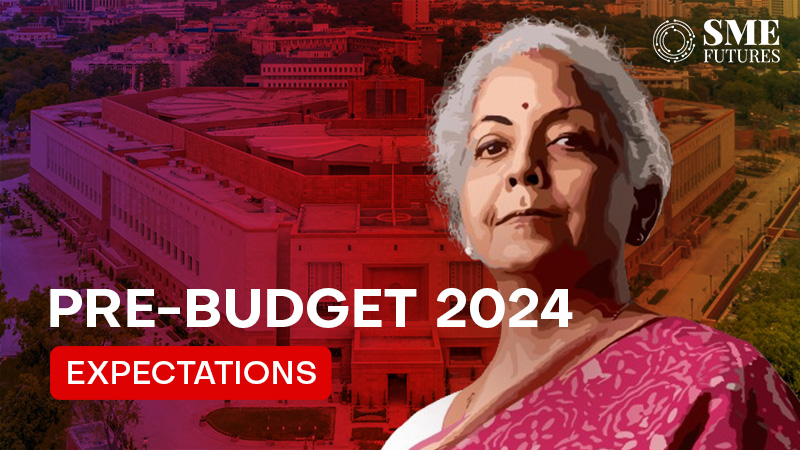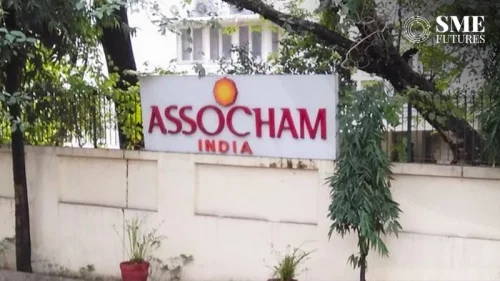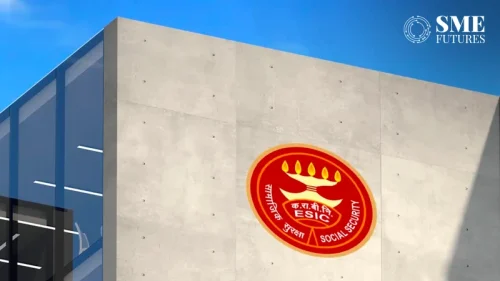In India’s thriving start-up ecosystem, entrepreneurs eagerly await the interim Union Budget for insights into the government’s economic roadmap. The focus is on transformative reforms, especially in the electric vehicle (EV) industry and the integration of renewable energy.
This article explores start-ups’ collective vision for the budget, delving into their expectations of transformative reforms in the EV industry and renewable energy integration. As per the latest data, the Indian EV market has seen a 35 per cent sales surge, attributed to government initiatives like the Faster Adoption and Manufacturing of Hybrid and Electric Vehicles (FAME) scheme. With the National Institution for Transforming India (NITI Aayog) targeting 225 GW of renewable energy capacity by 2024, start-ups seek robust policy support in the upcoming budget, underscoring the government’s pivotal role in shaping innovation and green technology for India’s sustainable future.
Expectations about EVs and renewable energy
Nikhil Bhatia, Co-Founder & Chief Strategy Officer, HOP Electric Mobility says, “As anticipation builds for the upcoming budget, the electric vehicle (EV) industry is poised for transformative reforms. Advocating for a streamlined Production-Linked Incentive (PLI) scheme, stakeholders seek clarity in provisions to encourage investment and growth. The call extends to widening the scope of the FAME II scheme, fostering innovation in diverse EV segments.”
It is crucial to focus on incentivising in-bound technology transfer and manufacturing capabilities, positioning India as a global EV technology hub.
“Anticipating the central role of lithium-ion batteries, we urge GST reform for increased cost-competitiveness. Charging infrastructure development, especially through public-private partnerships, is deemed pivotal for accelerated EV adoption,” he urges.
Moreover, the sector wants measures to promote universal battery charging and swapping infrastructure which aims to simplify user experience and standardise EV charging. “The forthcoming budget is anticipated to lay the foundation for a sustainable, technology-driven future in Indian mobility, aligning with global EV trends,” says Bhatia.
A visionary approach towards renewable energy adoption is advocated by Sameer Aggarwal, CEO & Founder (Revfin Services), who remarks, “Embracing a sustainable future requires bold steps, and in the upcoming budget, I advocate a visionary approach towards renewable energy adoption. Investing in renewable energy infrastructure is not just an environmental imperative; it’s an economic opportunity that can power our nation forward.”
“The government can incentivise renewable energy installations and R&D initiatives to accelerate this progress. By devoting resources to increase solar and wind power capacity, we not only lower our carbon footprint but also strengthen our energy security,” he adds.

Importance of subsidy
Government subsidies are pivotal in promoting the adoption of electric vehicles (EVs) and renewable energy in India. These subsidies make clean technologies more financially accessible, encouraging businesses and individuals to embrace sustainable alternatives and expedite the shift toward a greener energy ecosystem.
Notably, subsidies under the FAME scheme have led to a 92 per cent increase in EV sales, while incentives for solar and wind power projects have contributed to a 39 per cent growth in renewable energy capacity.
Mayank Bindal, CEO of Snap E Cabs, emphasises the importance of continuing the FAME II subsidy to support decarbonisation efforts.
Additionally, there’s a proposal to reduce the GST on li-ion batteries from 18 per cent to 5 per cent, lowering the overall cost of acquiring EVs. The government’s focus on infrastructure development, particularly in green and sustainable energy, reflects a shift from carbon-dependent to energy-efficient policies.
State governments are adopting new transport policies, aiming to convert petrol/diesel cabs into EVs by the end of the decade. The expectation is for EV financing to receive priority sector lending status to meet the government’s ambitious target of 30 per cent EV penetration by 2023.

Promote indigenous tech & India as manufacturing hub
Vaibhav Roongta, Chief Business Officer, Rays Power Infra Pvt. Ltd. says, “Recognising that the forthcoming interim budget leading up to elections, will be for a short period, the role of strategic budgetary allocations will be crucial in paving the way for future provisions that can accelerate the growth of the renewable energy sector. In line with India’s goal of achieving 500 GW of non-fossil energy by 2030 from the current capacity at 179.5 GW, there’s an opportunity to incentivise the shift to sustainable energy.”
Financial incentives such as tax credits, grants, and subsidies should be enhanced to make renewable energy solutions more economically viable for consumers and businesses alike. This can significantly reduce the initial investment barriers and accelerate the uptake of solar, wind, and other clean energy technologies, he elaborates.
India’s dependence on solar panel imports, which reached $1.13 billion in the first half of the current financial year, is a pressing concern, Roongta points out, adding, “The budget should incorporate measures to promote indigenous development, facilitate technology transfer, and incentivise localised manufacturing initiatives to conserve foreign exchange. More proactive measures and fiscal incentives should be provided and efficiently implemented for making India a BESS manufacturing and R&D hub.”

Expectations about logistics and infrastructure building
Expectations surrounding logistics and infrastructure building are aplenty. Efficient transportation networks and robust infrastructure are catalysts for seamless trade, fostering industrial expansion and job creation. The fulfilment of these expectations will lay the groundwork for a resilient and thriving national economy.
Rahul Garg, Founder & CEO (Moglix) says, “The Union Budget 2024 is likely to sustain the infrastructure spending spree. The full budget in July is likely to see a fiscal expansion. I expect a greater approved budget for NHAI to reduce borrowing and therefore road development project costs.”
He also expects a higher outlay on local manufacturing of railway coaches for Amrit Bharat and Vande Bharat trains, development of railway stations, airports, and ports. Combined with an interest rate cut by the RBI, the budget will be one among a long series of budgets aimed at transforming India’s manufacturing and infrastructure sectors and pushing for India’s green transition.
He also recommends simplifying the regulatory framework for IPOs, enabling start-ups to leverage the power of India’s equity markets.
Weighing in, Zaiba Sarang, Co-founder of iThink Logistics, says, “We expect several key steps aimed at driving the sector’s advancement. A greater focus on sustained investment in multi-modal infrastructure development is expected, with emphasis on dedicated freight corridors, inland waterways, and intelligent logistics parks to enhance efficiency and reduce costs.”
She also expects the upcoming budget to incentivise green initiatives, such as electric vehicles, green warehousing, and renewable energy adoption, aiming to reduce our carbon footprint and attract sustainable investments.
According to her, the logistics sector has long suffered from a skill gap, and it is high time that this issue is addressed through targeted training programmes and promoting digitisation with AI-powered logistics platforms, paving the way for transparency and competitiveness.
“Streamlining regulations, simplifying GST processes, and providing tax breaks for logistics start-ups can also contribute to an improved ease of doing business. Moreover, special schemes and subsidies for MSMEs operating in the logistics sector can empower them to compete effectively, fostering overall sector growth,” she adds.
Interim nature of the budget
Since this is the interim budget and July will again be the budget month, stakeholders talk about its importance while not expecting much out of it.
Shailendra Singh Rao, Founder of Creduce remarks on the temporary nature of the interim budget, saying, “This budget would be a vote on account, hence there wouldn’t be too much of an expectation from the present government. But because the election results seem to be predetermined towards a certain party, we hope that the present budget takes the good work forward.”
“We hope the climate change budget is taken forward with more emphasis on nature-based solutions. More job creation opportunities are generated in this process. And most importantly, technological advancements are encouraged in this sector, which would not only help Bharat but also the world,” he adds.
The embodiment of innovation and sustainability, India’s start-ups eagerly await transformative policies in the upcoming Union Budget. The positive trajectory of the electric vehicle and renewable energy sectors underscores the nation’s commitment to a cleaner, greener future. The stage is set for a promising era of growth and environmental stewardship.











